#Chinese Science Fiction
Text
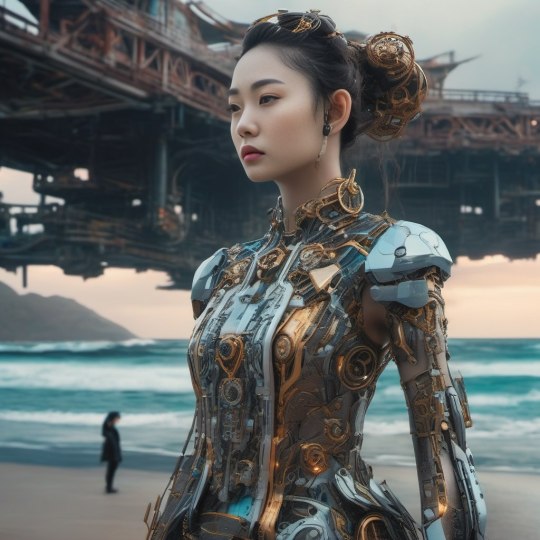
#Chinese science fiction#rootsinthefuture#future#sci-fi#science fiction#stable diffusion#sci fi#futuristic#cyberpunk#cyberart#androids#Asian
25 notes
·
View notes
Text
I’m currently doing a project on Chinese Science Fiction and if any of my followers has some recommendations (books, movies, tv shows), tell me, I’d love to know :)
Oh and if you have any thoughts on The Wandering Earth by Liu Cixin (book or movie) tell me about it, it’s my focus in my current essay and I am always happy for some input by others.
#ehh how to tag#chinese science fiction#liu cixin#sf#the liu cixin essay is actually on gender and feminism#just so you know beforehand
15 notes
·
View notes
Text
Interview with Science Fiction Writer Xia Jia
New Post has been published on https://china-underground.com/2020/04/05/interview-with-science-fiction-writer-xia-jia/
Interview with Science Fiction Writer Xia Jia
Xia Jia is an Associate Professor of Chinese Literature at Xi’an Jiaotong University, School of Humanities and Social Sciences has been publishing speculative fiction since college.
Wang Yao, known by the pen name Xia Jia is a Chinese science-fiction and fantasy writer. She majored in Atmospheric Sciences and received her Ph.D. in comparative literature and world literature at the Department of Chinese, Peking University, she is currently a lecturer of Chinese literature at Xi’an Jiaotong University. Xia Jia’s science fiction works have won seven Galaxy Awards for Chinese Science Fiction, six Nebula Awards for Science Fiction, and Fantasy in Chinese. One of her stories received an honorable mention for the 2013 Science Fiction & Fantasy Translation Awards. Her first story written in English, “Let’s Have a Talk,” was published in Nature in 2015. Her stories have been published also in Clarkesworld, Year’s Best SF, SF Magazine as well as influential Chinese Sci-Fi magazine Science Fiction World. Besides those written in Chinese and English, her works have been translated into Czech, Italian, French, Korean, German, Spanish, Japanese, and Polish. She’s also engaged in other science fiction-related works, including academic research, translation, screenwriting, and teaching creative writing.
Related articles: Chinese Science Fiction, Interview with Robert G. Price
Can you tell us about your career’s beginnings? What motivated you to become a sci-fi author? How did your adventure in the sci-fi world begin?
I haven’t always had a clear idea of my career as a science fiction writer. I got interested in science fiction when I was a kid. But at that time the science fiction market in China was not developed. It was hard to think about writing science fiction for a living. For a very long time, science fiction was just my hobby, my spare time interest. But things change with the big success of “The Three-Body Problem” and also the recent international influence of Chinese science fiction in these years. This pushed the development of science fiction in China and also gave the young science fiction fans and writers the opportunity to get jobs in the related areas. I was very lucky. I graduated and I got my Ph.D. in 2002. It was an epic time, the big explosion of Chinese science fiction. My dissertation was about “Contemporary Chinese science fiction” and it was a sort of a risk because when I started to do that project, I was not quite sure whether or not I could find a teaching job because of this topic. The truth is, that I was very lucky. I got accredited and got a teaching job. Right now I’m an expert on this topic in China. So right now, my main job is researching science fiction and science fiction writing is still my part-time job, but it’s closely related to my main job. I could say that science fiction is my career. My adventure began when I started to tell stories, when I was a kid, even before I learn how to write on ideas. When I was 8, I wrote my first work, which was like a fairytale story, a very short one. I’d collaborated with my best friend. So basically that was one of the starting points of my writing career. When I was in high school. I tried to write more science fiction stories. It was like a secret hobby. But I haven’t published anything. My first story was published when I was in college in 2004. It was a formal publication in the only Chinese science fiction magazine. It’s like a showcase for the science fiction readers community and made me become a science fiction writer. My first published story was “The Demon-Enslaving Flask”.
Xia Jia’s drawing for my flash story “Let’s have a talk”
She won the Galaxy Award 银河奖 which is China’s most prestigious science fiction award, which was started in 1986 by the magazines Zhihui
Who influenced you as an author? What were the stories that impressed you the most?
I could give you a series of names, but I just mainly focus on one author. This Chinese author passed away in 2003. His name is Zheng Wenguang. He is considered the father of Chinese science fiction, because he published the first science fiction story, since the foundation of the People’s Republic of China. He also published a lot of influential science fiction stories from the 1950s to the 1980s. He’s the most influential author since I began to read science fiction as a kid. The most impressive story is the latest story of his writing career. It has never been translated into English or other languages. The Chinese title is《战神的后裔》, which can be translated as the children of Mars. The story is about a group of Chinese people who try to establish the inhabitant on Mars, to change and rebuilt Mars into the second homeland of humanity. A very mature science fiction story, complicated with multiple characters and plots. That story routed me to Mars’ dreams when I was a kid. It made me think that maybe one day I could go to Mars. I talked to many, many people that my life dream is going to Mars one day in the future. Even when one day I’ll be old, my dream will always be to go to Mars and bury that book there.
Well, there is a possibility. They are working right now on going to Mars!
Yes, I think this is an exciting thing, that your dream may come true in your lifetime.
What is the hardest part when it comes to sci-fi writing? Where did your ideas come from?
For each sci-fi writer, it may be a different thing. For me, the most important thing is to have interesting enough ideas or characters to share with the readers. I think that sci-fi is not the only element. I think the most important is the inspiration, which motivated me to write science fiction: to share that view, urgent, real questions with readers. Not just to tell good stories. I think about something really interesting, something which would push me to share this idea. For most people, it’s not really easy to always get good questions. Sometimes you just stop thinking about like “Why?” or “How?” or “What will be?”. These kind of questions are just easy to be accepted by common education or reality, instead of asking questions about “What else?”, “What can we?”. I think that it’s a very good thing that science fiction gave me: more opportunities to encourage myself always to ask questions. Not just about my research area or my job. But randomly or commonly questions about humanity. And this is a very safe thing to do.
In her Science Fiction stories, she is walking the border, in a constant migration on the frontier of the unknown, searching self-cognition and growth.
How do you keep yourself inspired?
I keep myself inspired by reading about everything. I try to do everything. Of course, you can’t do everything at the same time 🙂 I just try to do more things. I read a lot, not just specific pieces, but also reports, news, scientific reports and academic research, studies about the past, the history of humanity, and all of these aspects. I think it’s very important to try other things. Other things you never think about that you should try. Like to do some art, to play music, to travel, to do some new sports, which is also a very good way to activate myself. To renew me.
How much of you and your personal life can we find in your Sci-fi stories?
I think a lot! For example, my first story published “The Demon-Enslaving Flask”. That story is about physic in a physic scenario. The story is about a demon who made a pact with a physician. The story came from my experience as a student with a major in physics. A very important thing is that you can find more and more female characters. Especially the main characters are female heroes in my science fiction writing. I think it’s very important to bring the reader into the point of view of females in science fiction. What I’m working on right now is a fix-up science fiction story entitled “Chinese Encyclopedia”. It would be like a collection of tales, short stories with a shared background where one main character travels through the stories. The main character is a female, a linguist who majored in humanities instead of science and technology. She’s in her ‘30, the same age. So you can find a lot of pieces of my personal life. She is the main narrator of all these stories, you can discover what she saw, what she witnessed, and also what she thought and find her feedback to all of these stories. I tried my best to make these people real enough, but at the same time, charming. I don’t like to make up a fictional character, which is like super perfect. I want to make them look like true people. Just like me. She’s not perfect. She’s just charming in many ways.
Xia Jia’s drawing on “cross the boundaries to see the hope”.
Do you have a story of yours that you are most attached to? Why? Can you share with us the idea behind it?
Yes, the story is called “Tongtong’s Summer”. Tong Tong is the name of the main character, and she’s actually the same main character of the “Chinese Encyclopedia”. But “Tongtong’s Summer” happens when the female was a young girl around 8. This story is based on my true experience with my grandfather, and it’s a tribute to the pass away of my grandfather. The story happens in an ordinary Chinese family, with parents, a little girl, and a grandfather. In the story, many things happened between the grandaughter and the grandfather. This story was originally submitted to an anthology edited by Neil Clarke, an American editor. At that time, he wanted to edit an anthology on cyborgs, and he asked me to write a story. I think that most of the cyborgs’ stories depict cyborgs as an inactive image, not as a human being. I wanted instead to write this story in a different way. I finished that story and I made my grandfather a cyborg. He is a good cyborg. He would love him. The main idea I want to share through this story is about how to keep revolutionary thinking, even when you are really old. In the story, the grandfather is old, he has many disadvantages as older people have, but he is not weak. He still got his revolutionary idea and thoughts. He’s like the real hero in this story. This story is in the Italian collection “Spring Festival” published by Future Fiction, thanks to my Italian publisher Francesco Verso.
Her science fiction skills have been visible also as director and actress in the experimental Sci-Fi film “Parapax” (2007), in which she appeared as three different identities of the protagonist across parallel universes.
Your writings are available in several languages. Translations involve dipping into the author’s thinking and new cultural aspects. What do you feel about exposing your mind and thinking to the world? What message do you hope people will understand?
Yeah, in many. Thanks to Ken Liu: my first and most important English translator. He asked me to translate my stories into English. At that time I never imagined that one day my story could be translated into other languages. I have also thanks, Neil Clarke. He published most of my English stories in the online Magazine Clarkesworld. I think the process of translation is a sort of international transportation by words. This also inspires me a lot, in many ways. I get some feedback from the translators and my readers from different cultures, languages and this lead me to think more about the topics I’m exploring. I think that I’m very lucky since this is another way of trying new things. For example, right now in recent years, I’ve traveled internationally. I have been invited to different countries and cities to participate in writers’ festivals, to give speeches on science fiction and other topics which give me opportunities to meet new people, to make new friends, and to know the world better. That’s an excellent way of living. About the message, I hope people do understand my stories. We are always trying to cross the boundaries, to explore the unknown area outside the world. The boundaries are not just only between, for example, the known and the unknown knowledge, but it’s also something related to the access to different cultures, languages, genders, classes, living spaces. The people around you live in a space that for you it’s like an alien space if you never went into that space. So if you have the courage and the curiosity, to try to cross the boundaries, it’s like having a new point of view on the world you felt you knew already enough. Translation, like science fiction writing and also like my teaching job, my research, and international travel, all these things can be part of this crossing the boundary activities.
It has taken all the moments of my life for me to become who I am today. Life is such a beautiful gift that no matter how carefully you measure it out it will seem like a waste. So don’t panic, and there’s time enough for love.” Xia Jia, Clarkesworld Magazine
Besides being a writer, you have been involved in the making of Parapax (2007). Nowadays movies with digital and spectacular effects have reached high-quality levels. Do you think this has lowered the content level of the stories and plots, addressing the audience to visual impact and not to psychological and human aspects?
That’s actually a very important question, which can be hard to give a simple answer. One thing I want to say is that Parapax was a student’s work. It was made when I was doing my master’s degree. It’s a movie we did with a really low budget. Without any special effect, because we couldn’t afford that. The main idea about that movie is a multi-universe or multi possibilities for human life. I wrote that screen and also I played the three main characters. That was how we avoid spending a lot of money to finish a science fiction movie, using a few tricks. At that time, we, as poor students, questioned the idea of depending on visual effects, technologies, or movie technologies, and we found instead other ways to tell a story, without all of these effects. We try to give the answer through our own work. So that’s one of the aspects of this question. But the other is that right now I’m studying science fiction movie a lot. I think it’s not easy to conclude the question into a simple opposition, for example like the form vs the content, the visual effects vs the story. It’s not like a simple observation, not like you have to sacrifice one to make benefit another one. I think in the age of digital capitalism, the media, the vision, and the visual video effects became some of the most important elements of the story itself. So if you want to tell a story it’s very hard to avoid these effects. A very good example is the TV series ‘Black Mirror’. All of these stories talk about human vision in the age of technology and also they adopted a lot of 3D effects.
The visual effects express this aspect. I think that there are bad movies and good movies, but this not depend on which aspect you more focus on. It doesn’t just depend on how much special effects you use in a science fiction movie. It also depends on how deep the main creators try to discuss issues. For example, human vision. You can tell a very simple story about how human vision is badly influenced and impacted by the new technologies. You can try to abandon this technology and get over to the original pure human vision. But actually, this pure human vision never existed. Human vision always has been deeply influenced by technology. All the time.
Sci-fi works explore the unknown, different points of view, parallel universe, possibilities, etc. Do you think they can help people to understand human beings and try to find answers or to interpret the future?
Yes! First, I may disapprove of the idea that science fiction can help people to anticipate the future. It’s not like to point out which direction we should go. But at the same time science fiction can help us to have a better understanding of the past and human beings, also the present situation and to think about alternative futures. Because I think that the only way to imagine alternative futures is by learning of past and present from an alternative point of view. If we only have a very simple version of the history of humanity, we would believe that history is always like this, and in the future, we can have nothing new because we should always follow all of these mistakes.
The tragedies will have already a victim and we will only just repeat all of these mistakes, again in the future. So that’s a very bad way of thinking. If we want to try to imagine something different, the only way is to learn about the history of humans beings better. From different aspects. From a different point of view. From different people’s cultures. To realize that human history is not just a simple story. One of my favorite academic, about this area, is Frederick Jameson, an American Academic. He said that science fiction is generally understood as they attempt to imagine only imaginable future, but its deepest subject may, in fact, be our own historical present. So I think that’s a very deep idea to review the true meaning of science fiction and I believe in this idea.
Eastern Science Fiction is making a huge mark today. Do you think Chinese sci-fi has any influence on society? Can Chinese sci-fi be a tool for understanding contemporary China?
Yes! The superficial reason is that the readership of Science Fiction in China has been enlarging significantly in recent years. I mentioned that when I was a kid the science fiction market size and distributors in China were very small. So it was really hard to see if there was any influence of science fiction into society. For the science fiction readers, and the fans, we always had the feeling that we were just the idiots living in a common human world and what we were interested in, was just entirely separated from reality, the common human life. But since things changed in recent years, right now, you can say that it’s become more and more common for ordinary people. For example, they watched the science fiction movie “Wandering Earth”, or they heard the discussion about the “Three-body Problem”. So they began to use the science fiction elements to talk about what is happening right now just around them, like the social issues. For example, the way Coronavirus is discussed in China. The people are not only talking about this issue from a scientific point of view but also in other ways, involving multiple social issues: how they can organize people to do things better, to follow the instructions from the scientists, how to convince people to believe in real ideas while avoiding believing in false information, in false news. So all these things had already been discussed in multiple science fiction stories and you can see that the common people and the mainstream or the media began to borrow elements from science fiction to talk about that.
Science fiction thinking can help us to deal with many real social issues. So I think that’s a very passive influence of science fiction on society. To answer the question “science fiction as a tool to understand contemporary China”, the International readerships of Chinese science fiction became larger and larger. I don’t want to use the word door, but it’s like a window, a portal for the world to get to know China better. Last time when I visited Italy, local people told me that in the past the most popular Chinese writers in Italy were Yu Hua or Mo Yan but I think they can only provide one aspect of Chinese Society. Right now since they became to be interested in Chinese science fiction, they began to read Liu Cixin’s works and other authors’ work. Even my work. Many readers told me that they can find a quite different China also in my work. So that’s a good way for the International readership to get to know China.
Traditions are always changing over time. It is we, the present generation living on the frontier between tradition and modernity, present and future, who struggle for our self-affirmation, not some “tradition” that retains its own self-evident essence.” – Xia Jia, Clarkesworld Magazine
Chinese society in the technocultural-information era is getting closer to many Western sci-fi stories. Do you think this transformation of China is influencing and changing other countries, and to some extent, the new western sci-fi stories?
I want to use what president Xi Jinping, had mentioned: the concept of human beings as a community with a shared destiny. 人类命运共同体. So in the past, we may think that China was a Nation-State partly separated from the International Community. But in recent years we realized that all this Nations State combined with each other, shared a destiny. So when we talk about China, we are not just talking about one Nation: a lot of talks are about this shared destiny. So what is happening in China: both the negative or and the positive aspects, all of these issues, these problems, all disadvantages and advantages, all of these just bring out the question to these human beings as a community with a shared destiny. So when they ask about “What about China?” and “What is China going to be?”, there are also questions like “Where the human beings came from?” or like “What aspect of human being and how this aspect will influence the future of humanity?”. So I think that a very important thing is to explore more in contemporary Chinese science fiction including my own work. Recently my work is mainly focused on this kind of issue. When I talk about my stories, I’m not focused on writing Chinese stories. I don’t want to consider them as a narration with Chinese characteristics, Chinese style or flavors, because such Chinese characteristics, sometimes can be stereotyped images of China.
I want to bring out the question “Why you as a foreigner reader should feel more interested in what is happening in China right now?” It’s not just a Chinese issue, but also the issue we shared. So that’s also the weight of contemporary Chinese science fiction that makes an influenced on the so-called English science fiction or Western science fiction writings. There are more and more Chinese elements showing up in the science fiction written by Western writers. More and more Chinese science fiction is translated into English and other languages. It’s not just because these people are curious about China as a totally strange, and unknown country but also because they are really interested in these stories. So that is what I interpret as the influence of Chinese science fiction.
Photos and illustrations courtesy of Xia Jia
#ChineseScienceFiction
2 notes
·
View notes
Text
Iron Widow (Part 1)
Some initial thoughts on my new #CurrentRead Iron Widow by Xiran Jay Zhao. I'm really excited about this one!
I don’t know if it’s part of having ADHD, some other neurodivergence thing, or just a me thing, but one of the most frustrating things about my brain is how it will just…not let me start a new story. It most often applies to books, though occasionally TV shows hit it too. But I’ll have a book I’m excited to read. I’ll get the book. And then I will be completely constitutionally incapable of…
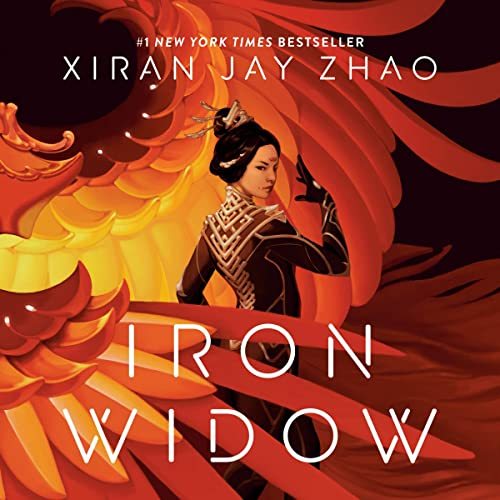
View On WordPress
#1#audio books#Chinese science fiction#currently reading#lgbtq#lgbtq books#library books#queer#science fiction#YA Fiction
1 note
·
View note
Text
"Oh, right," Rorschach said suddenly. "We get it now. You don't think there's anyone here, do you? You've got some high-priced consultant telling you there's nothing to worry about."
Jack was deep in the forest. We'd lost most of the tactical overlays to reduced baud. In dim visible light Rorschach's great ridged spines, each the size of a skyscraper, hashed a nightmare view on all sides. The feed stuttered as Bates struggled to keep the beam aligned. ConSensus painted walls and airspace with arcane telemetry. I had no idea what any of it meant.
"You think we're nothing but a Chinese Room," Rorschach sneered.
Jack stumbled towards collision, grasping for something to hang on to.
"Your mistake, Theseus."
-Blindsight, by Peter Watts
13 notes
·
View notes
Text
re-reading little mushroom
"you're just a tiny little mushroom"


#little mushroom#xiao mogu#danmei#shisi#science fiction#chinese novel#jjwxc#this novel ruined me#an zhe#an ze
13 notes
·
View notes
Text
it's interesting, a few people on my post yesterday about the dandelion dynasty told me they were taking it as a rec for the series, but i didn't actually recommend the series in that post. it's making me think about whether i would rec it to people, a question i hadn't fully considered yet (as it is a very different question from "do i like this book?"). so this is me figuring out the answer to that question. i'll keep it spoiler-free (though i make no promises on brevity).
i just finished book 3 (of 4) and each installment has left me more invested than i was before, but the series started out very slow, and i didn't really get into it until halfway through book 2. i wouldn't be surprised if a lot of people bounce off the first book; i didn't, but only because 1) i almost never give up on a book that i've started (it's a character flaw of mine 😕) and 2) my trust in ken liu is ridiculously high because the other stuff i've read by him is so beloved to me. so my reaction to feeling kind of meh about book 1 was "okay, let's see where he's going with this" rather than "i guess this just isn't my cup of tea."
i should say that the problem might just be my own ignorance/lack of familiarity with the form. i don't read a lot of epic fantasy - in fact, lord of the rings is the one series that i have given up on reading a couple of times because it just left me totally indifferent. so if you like epics, you are starting out way ahead of me and can maybe just ignore the rest of this post lol, but i think i had to adjust to what the form is asking of me and what it's best suited to accomplish before i could get fully on board.
the main thing i struggled with is the writing, like the actual sentence-level mechanics of voice and style. this surprised me, because i usually find his writing very beautiful, or, when not beautiful, i can get a sense of the effect he means to achieve by employing a certain style. but in this series, the writing came across as kind of awkward and one-note to me at first, and i couldn't see a reason for it to be that way.* the dialogue especially - different characters don't really have different ways of speaking, they all feel pretty much the same. this was one of the main things i had to adjust to, but i do get it now. i don't just mean that i got used to the style and it doesn't bother me anymore, though that is true; i mean that i now understand the effect he means to achieve by employing this style, which gives it purpose and inextricably ties it to the story he's telling (this becomes especially clear in book 3, as it's directly related to a major theme of that book). if the style were different, he would be telling a different story; that's the sign of a successful execution, i think.
i said in the tags on yesterday's post that one reason the series doesn't have much of a fandom on here might be that the characters aren't natural blorbos. of course every character is probably the blorbo of somebody somewhere, but i don't know that these characters were designed to be blorbos, if that makes sense. not that they're plot devices either! every single one of them is conflicted and complicated and compelling, and most of them are followed over a period of many years, so we see them develop as people over time. but there is no protagonist, for example. you could also say that every character is a protagonist. the "list of major characters" at the beginning of book 3 is six pages long, and there are stories to be told about each of these characters, and none of them are told in isolation. but in a way, the characters themselves are not the point, or if they are, it's in aggregate - it's in the ways they're all complex, the ways they all have motivations that make sense to them (and that make sense to us, once we get to know them). and it's about power and the roles that the characters play in their society, rather than the roles the characters play in the story. or maybe those are the same thing! because ultimately, the main character of this story is the society. and the plot is the history of this society, rather than the journey or life of a single person or handful of people.**
(sidenote, there will be a period during book 1 when you will think to yourself, "wow, all the women characters are super one-dimensional and the narrative doesn't seem to respect them." this is on purpose. just keep going.)
the plotting is intricate while also feeling very organic. he's got dozens of plates in the air at once, he's maintaining them over a long period (these books are MASSIVE), and he's somehow making it seem like a real history, not like an author pulling strings. i haven't finished it yet, but my guess is that he's going to pull off a very satisfying conclusion that's at the same time very open-ended. definitely looking forward to it.
and the worldbuilding. oh, the worldbuilding. this is some of the most detailed, complex, realistic*** worldbuilding i've ever encountered, and he covers SO much ground. you want linguistic worldbuilding? you got it. philosophy? it's here. psychology of empire? coming right up. the nitty-gritty of everyday governance? buddy, pull up a chair. mechanical engineering? how much time you got?? (it better be enough time to read 3504 physical pages, because that's how long this series is.) and he's drawing on chinese history and cultural narratives rather than slapping lipstick on a tolkien clone (see his comments here, but stop reading at "In this continuation of the series" if you want to avoid spoilers). he WILL go on for a hundred pages about a single invention, but it's SO interesting that he is allowed. this is a story about how technology (including language, and schools of thought, and agriculture, and...) shapes, and is a product of, its time and place and people, so again, this is all to purpose. but it's also just. really cool.
the last thing i'll say, and this is mainly for other ken liu fans, is that one of the things i most love about his short stories is how they tap into emotions i didn't even know i had, as though they're reaching inside of me and drawing to the surface ways of experiencing consciousness and love and mortal life that i had no idea were in there. this series is not causing emotional revelation for me in the way his other stories do, which isn't a bad thing - i don't mean to say the series is not engaging or that it inspires no emotions! i just mean, iykyk. if you've read the paper menagerie and are expecting that experience, you will have a better time here if you leave those expectations at the door. i am invested in this book because it's engaging my intellect, curiosity, sense of wanting to find out what else the characters will learn and what's going to happen next...less because it's turning my heart inside out inside my chest. and like thank goodness, because i don't think i could survive four entire 900-page books' worth of that! but anyway. word to the wise.
tl;dr: yes, i recommend it, especially if you like epic fantasy. if you're a fan of ken liu's other work, this is quite different, so just know that going in!
*this opinion is of course subjective and not universally shared. for instance, see this review of book 3 (full of spoilers, so don't actually read it lol) which says "There's Liu's voice to hold onto, though — beautifully deployed here and fully in command of the language of his imaginary universe." so ymmv. maybe it's an epic fantasy thing.
**this is making me realize that the story is commenting on this very thing through a tension between bureaucracy (founded on interchangeability) and monarchy (informed by a specific personality). dude. that's so meta!
***though sometimes i'm like, "really? you scaled up that invention to use untested on the battlefield in the span of like two weeks? sure, jan." so sometimes he falls down a little on translation of ideas into logistics, but it makes for such a great story that i'll allow it.
#i kind of want to call it epic science fiction rather than epic fantasy#i know the categories are very porous. but if you think of fantasy as having 'magic' and scifi as having 'technology'#this is scifi#there's no magic. unless you count the gods creating weather patterns etc. to help or hinder their favorite mortals#but i don't count that as magic#okay i guess maybe Gitré Üthu is magic...but again that's a god thing. so there's a gray area#the aesthetics are more fantasy than scifi. these terms are meaningless though so just ignore me lol#another thought. it occurs to me that some of the style choices he's making might be related to comments of his that i've read#on translation...and how when he translates a story he tries to retain a sense of it having been written in a different idiom#he likes people reading a chinese story in english to be able to tell that it was not originally written in english#this story was originally written in english irl. but in the world of the story itself they are speaking other languages#like for instance page 1 of book 1 features the lyrics of a song. they read kinda awkwardly. but don't translated lyrics almost always#look like that? because the rhymes and cadence and number of syllables etc. are so dependent on the language of origin?#the dandelion dynasty#ken liu#the grace of kings#the wall of storms#the veiled throne#my posts#links#wow this is NOT how i planned to spend my evening. and yet here we are. time to shower and then start thinking about bedtime#why does everything take me so long???? how are people so fast. ugh. it takes me hours just to have thoughts#and then writing them down? fuhgeddaboutit.
26 notes
·
View notes
Text
Officially announcing my upcoming novel- SPLICERS: THE RISING GODS
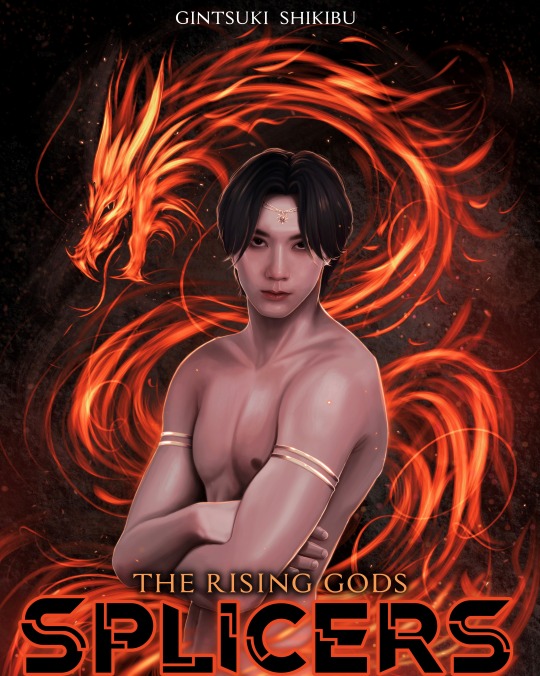
Chinese Mythology meets Cyberpunk 2077 in this sci-fi romance set in a dystopian, multi-tiered city state...
Chentang City is not a place of opportunity.
It's the kind of society where you are forever locked into whatever economic class you were born into; the majority of the population live in single room shacks with their entire families in the Outer Circle, those with something of a disposable income live in relative comfort in the Inter-Circle, and the richest of the rich live amongst the neon lit skyscrapers of Prime Island.
Nezha knew he was unlucky; being born in the Outer Circle was basically a sentence to an early death after a life spent toiling away in factories, manufacturing products he'd never be able to afford. However, his desire to climb the economic ladder was only outshined by his beauty, and that made him the perfect candidate to become a Rentboy. After finding some success at a brothel in the Inter-Circle, he's convinced he’s only one good night away from changing his family's lives forever.
However, everything goes to Hell when the brothel unexpectedly shuts down, and Nezha is forced to get in on heist to steal Xiandan; the hottest drug in the city that supplies both a euphoric high, and the potential to develop superhuman powers.
When things inevitably go wrong, Nezha finds himself gifted with more power than he could've ever imagined, and he comes to an intoxicating realization; the chance to change his life that he's always wanted? This is it, and he has no intention of wasting it. He’ll join forces with Yang Jian, the leader of a group of cyber-rebels called Ghostnet, and Ao Bing, the son of the CEO who practically owns the entire city. Together, they’ll fight to bring down Chentang City’s literal and metaphorical walls, while coming to realize that the connection they share might truly be the strongest force on the planet.
Tentatively Releasing 12/2/24!
6 notes
·
View notes
Text
The boys of Huaxia dream of pairing up with girls to pilot Chrysalises, giant transforming robots that can battle the mecha aliens that lurk beyond the Great Wall. It doesn’t matter that the girls often die from the mental strain.
When 18-year-old Zetian offers herself up as a concubine-pilot, it’s to assassinate the ace male pilot responsible for her sister’s death. But she gets her vengeance in a way nobody expected—she kills him through the psychic link between pilots and emerges from the cockpit unscathed. She is labeled an Iron Widow, a much-feared and much-silenced kind of female pilot who can sacrifice boys to power up Chrysalises instead.
To tame her unnerving yet invaluable mental strength, she is paired up with Li Shimin, the strongest and most controversial male pilot in Huaxia. But now that Zetian has had a taste of power, she will not cower so easily. She will miss no opportunity to leverage their combined might and infamy to survive attempt after attempt on her life, until she can figure out exactly why the pilot system works in its misogynist way—and stop more girls from being sacrificed.
#Iron Widow#Xiran Jay Zhao#ya book#ya sci fi#science fiction#book series#chinese rep#bisexual#bi rep#disabled rep#wheelchair user#polyamorous#poly rep#robots#mecha#daily book#fiction#lgbt fiction#lgbtqia#bookblr
50 notes
·
View notes
Text
I don't trust myself to landscape two matching brows out of the entity I've got. And how am I supposed to sign up for my death if my eyebrows are uneven?
Xiran Jay Zhao, Iron Widow
#Xiran Jay Zhao#Iron Widow#eyebrows#sisters not twins#uneven eyebrows#beauty#unrealistic beauty standards#Chinese literature#Chinese Canadian literature#science fiction#sci fi#feminist literature#quotes#quotes blog#literary quotes#literature quotes#literature#book quotes#words#text#funny quotes#humor#dark humor
10 notes
·
View notes
Text
"Sometimes I thought life was precious, and everything was so important; but other times I thought humans were insignificant, and nothing was worthwhile. Anyway, my life passed day after day accompanied by this strange feeling, and before I knew it, I was old.…"
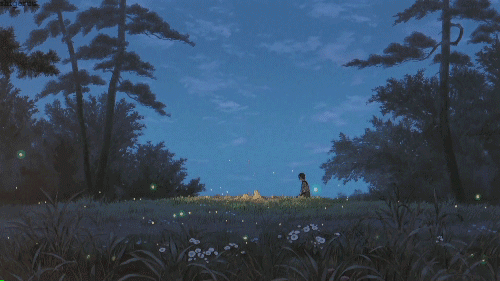
#three body problem#liu cixin#三体#science fiction#cixin liu#tencent three body#cdrama#chinese literature#the remembrance of earth's past#remembrance of earth's past#ye wenjie
25 notes
·
View notes
Text
三体 - China
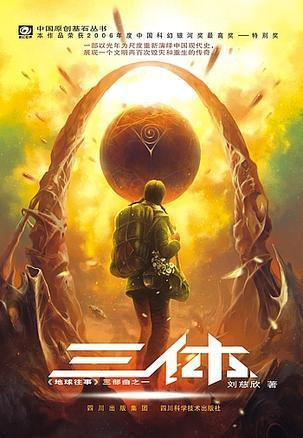
Set against the backdrop of China's Cultural Revolution, a secret military project sends signals into space to establish contact with aliens. An alien civilization on the brink of destruction captures the signal and plans to invade Earth. Meanwhile, on Earth, different camps start forming, planning to either welcome the superior beings and help them take over a world seen as corrupt, or to fight against the invasion.
#3 body problem#three body problem#science fiction#sci fi books#book covers#book cover#chinese cover#china
2 notes
·
View notes
Text
25 Science Fiction Movies from Hong Kong, China, and Taiwan to Watch
New Post has been published on https://china-underground.com/2019/02/17/25-science-fiction-movies-from-hong-kong-china-and-taiwan-to-watch/
25 Science Fiction Movies from Hong Kong, China, and Taiwan to Watch
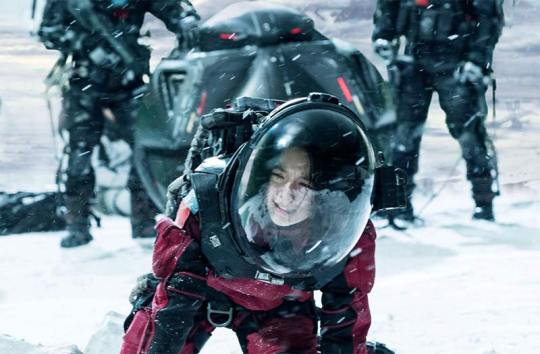
The best Chinese science fiction films from China, Hong Kong, and Taiwan in chronological order.
Read Chinese Science Fiction Movies
#ChineseMovies, #ChineseScienceFiction
0 notes
Text
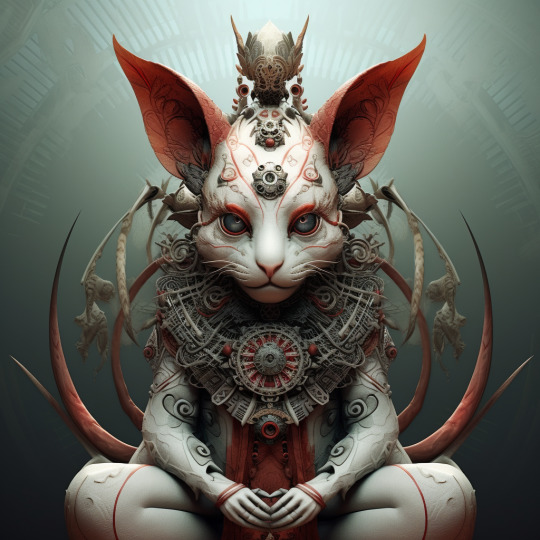
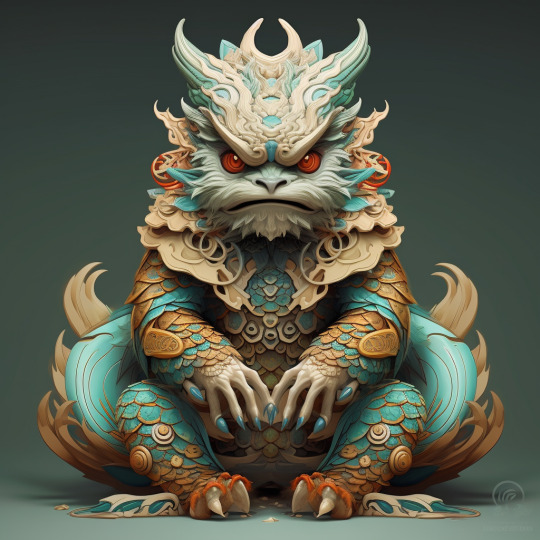
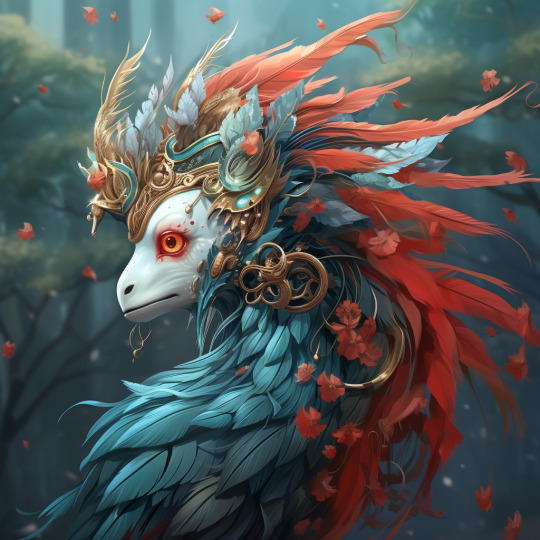
11 notes
·
View notes
Text
Have You Ever Been Grabbed By The Throat By a Book That Wouldn't Let Go Until You Finished It? That's This Book.
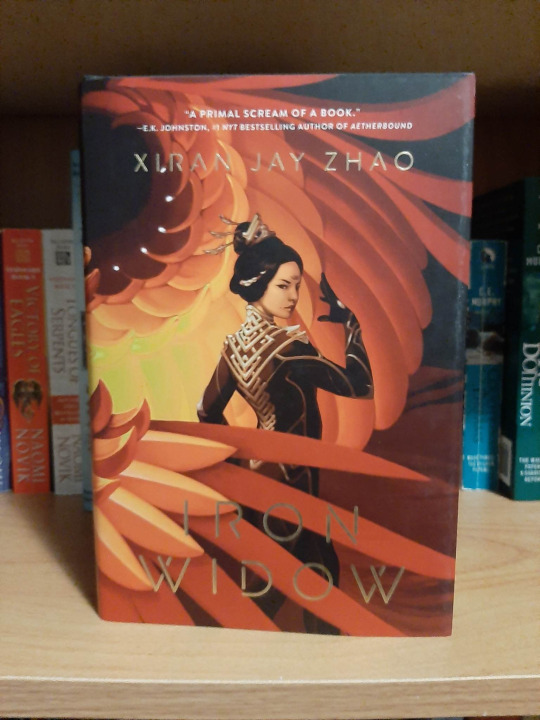
Wu Zetian says that the triangle is the strongest shape, and if this book had hands, it would have wrapped them in a triangle around my throat. This book came out while I was still deeeeeeeeeeeep in burnout from my PhD, and I hadn't read a fun book in I don't know how long, and I was struggling to read for any length of time. It had been over five years since I had read a book in one sitting.
With this book, I had no choice. It grabbed me, pulled me in, and refused to let go until the bottom of the last page. And wow was it worth the ride! Let's talk Iron Widow.
The book was pitched as Pacific Rim meets The Handmaid's Tale crossed with a very loose reimagining of the rise of Wu Zetian, only Emperess of China, and that's absolutely in this book, but it's not ALL that's in this book, and I would tell you it's not even the most important thing in the book.
There are a ton of important things about this book, from it's deep, unflinching look at female oppression and patriarchal power structures to its representation of polyamory and disability to its look at how social media and advertising can affect the individuals behind the constructed personas.
All that said, the line that made me stop and cry because it struck a chord in my soul was when Zetian learned that she could leverage her Chrysalis to allow herself to fly, and nearly cries saying that just walking had always been so hard for her. Zetian had her feet broken and bound by her grandmother as a child, so walking is never not painful for her, and she spends not a small amount of the book using a wheelchair. However, finding that flight gives her autonomy in her motion absolutely floored me, because after I began experiencing rheumatoid arthritis, walking was always some degree of painful for me as well. I also had to find independence and autonomy in motion, and while I found that in the pool rather than in flight, watching Zetian discover it took me right back to that magical, pain-free moment of floating in the water. There were tears on reading that.
The other incredible thing about Zetian is that she is allowed to be prickly. She is allowed to be deeply, utterly furious, and she is allowed to go completely feral. I grew up with my SFF female protagonists who either were punished (or disallowed from being feminine) for being angry or who were never angry, and as an adult, I love a female protagonist who is allowed to be angry. It helps that Zetian also takes no shit and is plenty savvy enough to walk circles around other people when push comes to shove. And this is before we get to Yizhi and Shimin.
Yizhi initially comes off as a privileged rich kid who thinks money can fix any problem. Then, he learns to radically weaponize his wealth and influence to support Zetian. I like to think of him as Arthur Holmwood, Lord Godalming, if Arthur had weaponized throwing cash around instead of just signing the checks the rest of the vampire hunting squad wrote. As far as I'm concerned, Yizhi's best moment is when his father is trying to blackmail Zetian and drive a wedge between Yizhi and Zetian. Zhao sets up the scene for both Yizhi's dad and Zetian to argue their positions, but our boy Yizhi is having NONE of it. He fries his dad to a crisp before locking eyes with Zetian and saying "I believe you." Y'all, there was literal cheering and fist pumping when I read this. A guy believing a woman over another man shouldn't be radical, but APPARENTLY it is not only radical, it's a "hell yes" moment. We do not mess with Yizhi.
Next we have Shimin. Darling, sweet, alcoholic, anger-management needing Shimin, who honestly got absolutely screwed by life. Shimin just needs a hug, frankly. Watching his relationships with Zetian and Yizhi develop was honestly one of the best parts of this reading experience.
Overall, I cannot recommend this book strongly enough. It is compelling, has a ton to say, and is just an absolute roller coaster of a book. I credit it with helping my reading recover after my degree, and I cannot wait for Heavenly Tyrant to come out this year.
#xiran jay zhao#iron widow#wu zetian#gao yizhi#li shimin#science fiction#ya sci fi#ya science fiction#polyamory#disability#chinese history#wu zetian reimagining#books and reading#fiction#books & libraries#books and novels#book recommendations
39 notes
·
View notes
Text
it's probably not the best time for this, but:
If you read Science Fiction, who's your favourite author, what is your favourite book?
Bonus: Have you read Chinese SF?
5 notes
·
View notes